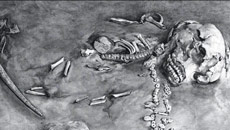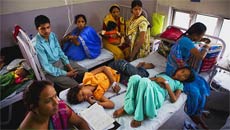Experts have urged global leaders through a series in a science journal to recognise midwifery's potential to save the lives of women and infants worldwide.
The series has been done by an international group of academics, clinicians, professional midwives, policymakers and advocates for women and children.
It shows the scale of the positive impact that can be achieved when effective, high quality midwifery is available to all women and their babies.
Apart from saving lives, it also improves their continuing health and well being and has other long lasting benefits.
The authors also produce evidence of a trend towards the over-medicalisation of pregnancy and the use of unnecessary interventions such as caesarean sections in high income and lower income countries, with consequent hazards and costs.
"Although, midwifery is already widely acknowledged as making a vital and cost effective contribution to high quality maternal and newborn care in many countries, its potential social, economic and health benefits are far from being realised on a global scale," said Mary Renfrew, professor from Dundee University in Scotland.
Every year, nearly 3,00,000 women are thought to die during pregnancy, childbirth or soon after.
"It is important to understand that to be most effective, a midwife must have access to a functioning healthcare service, and for her work to be respected and integrated with other healthcare professionals," said Petra Hoope-Bender, professor from Instituto do Cooperacion Social Integrare, Barcelona in Spain.
The series appeared in the journal The Lancet.





